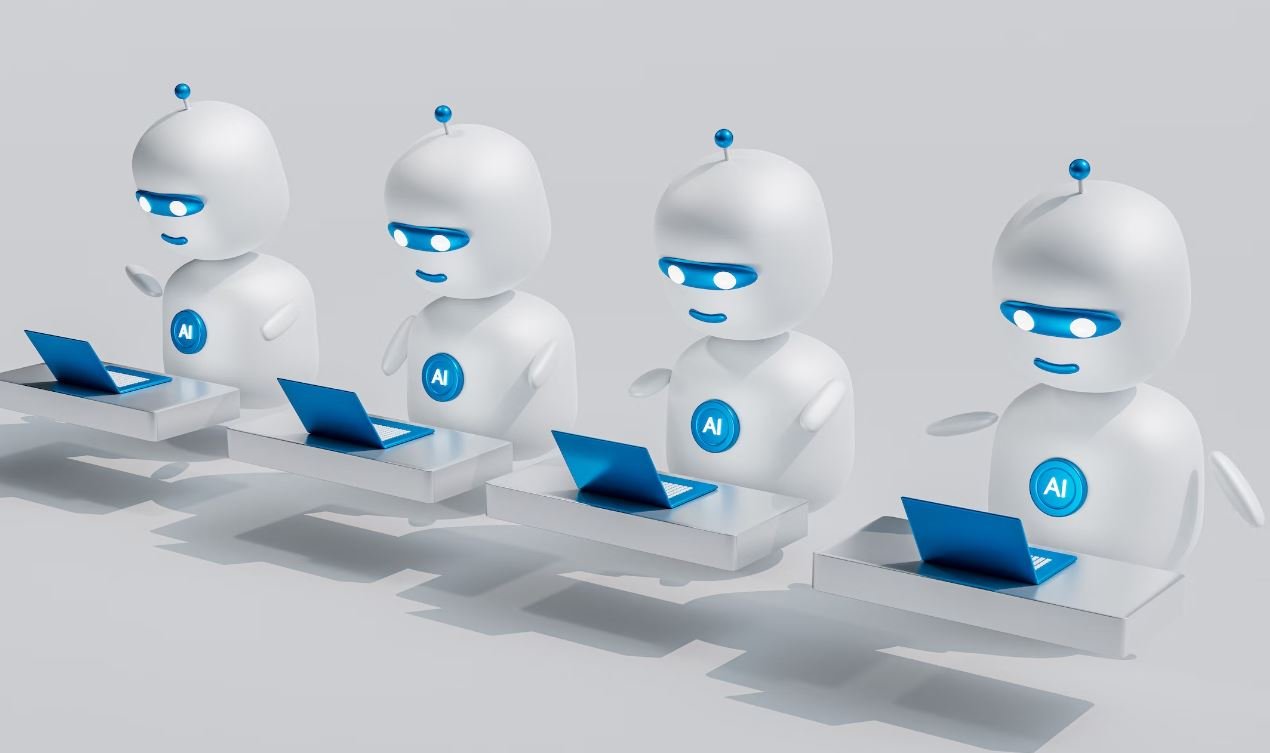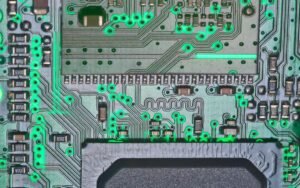AI Deepfake Singing
Artificial Intelligence (AI) technology has rapidly advanced in recent years, with one intriguing application being the creation of AI deepfake singing. Deepfake singing refers to the use of AI algorithms to manipulate or entirely generate human-like singing voices. This technology has the potential to revolutionize the music industry, enabling the creation of new songs, vocal performances, and collaborations that were previously unimaginable.
Key Takeaways:
- AI deepfake singing utilizes advanced algorithms to manipulate or generate realistic singing voices.
- It can be used to recreate the voices of deceased singers, enabling posthumous collaborations.
- AI deepfake singing has both positive and negative implications for the music industry.
Using AI deepfake singing, it is now possible to recreate the voices of iconic singers who are no longer with us, opening up new possibilities for posthumous collaborations. For example, an AI algorithm can analyze the existing songs and vocal recordings of an artist and generate new vocal performances in their voice. This allows for the creation of entirely new songs featuring the artist’s voice, even after their passing. It adds a new dimension to the music industry by preserving and extending the legacies of beloved singers.
On the other hand, AI deepfake singing raises ethical concerns and challenges for the music industry. It becomes increasingly difficult to discern what is real and what is artificially generated, which can undermine the authenticity and integrity of music. Similarly, there is a risk of misusing this technology to create deceptive content or manipulate people’s perception of artists.
Advantages of AI Deepfake Singing:
- Reviving the voices of deceased singers, enabling posthumous collaborations.
- Exploring new musical genres and styles using AI-generated voices.
- Expanding creativity by allowing artists to experiment with virtual collaborations.
AI deepfake singing has the potential to introduce entirely new virtual collaborations, as artists can experiment with AI-generated voices to explore different genres and styles. It offers a platform for musicians to push the boundaries of creativity and collaborate with virtual vocalists, opening up limitless possibilities for innovation.
Challenges and Concerns:
- The erosion of authenticity and integrity in music.
- Potential misuse of AI deepfake singing technology.
- Legal and copyright issues in using AI-generated voices.
The use of AI deepfake singing technology raises potential challenges and concerns that need to be addressed. *There is a risk of eroding authenticity and integrity in music, as listeners may struggle to differentiate genuine performances from AI-generated ones. Additionally, issues such as copyright and legal ownership of AI-generated voices need to be carefully navigated to ensure fair compensation and recognition for artists.
| AI Deepfake Singing Usage | Potential Impact |
|---|---|
| Music production and composition | Innovation and expanded creativity |
| Live performances and concerts | Enhanced stage presence and possibility of impossible vocal performances |
Table 1 showcases some potential use cases of AI deepfake singing, highlighting the impact it can have on music production, composition, live performances, and concerts. It demonstrates the wide-ranging applications of this technology and how it can push the boundaries of creativity in the industry.
Conclusion:
AI deepfake singing has both exciting possibilities and ethical implications for the music industry. While it allows for the revival of iconic voices, posthumous collaborations, and exploration of new musical styles, careful consideration and regulation are necessary to ensure the authenticity and fair treatment of artists. By embracing this technology responsibly, the music industry can continue to evolve and innovate.
| Advantages of AI Deepfake Singing | Challenges of AI Deepfake Singing |
|---|---|
| Reviving deceased singers’ voices | Erosion of authenticity and integrity |
| Exploring new musical genres and styles | Potential misuse of technology |
| Expanding creativity and virtual collaborations | Legal and copyright concerns |
Table 2 provides a summary of the advantages and challenges of AI deepfake singing technology. It underscores the need for careful consideration of the ethical implications and regulatory framework to strike a balance between innovation and preserving the integrity of music.

Common Misconceptions
1. AI-generated Deepfake Singing is Indistinguishable from Human Voices
One common misconception about AI-generated deepfake singing is that it has reached a level of perfection where it is impossible to tell the difference between AI-generated voices and real human voices. However, this is not entirely true. While advancements in AI technology have improved the quality of deepfake singing, there are still subtle nuances and emotions that AI struggles to replicate accurately.
- AI-generated deepfake singing lacks the same level of emotional connection as human voices.
- Errors and artifacts can still be present in AI-generated singing, which can give away its artificial nature.
- Expert listeners and trained musicians can often identify discrepancies in AI-generated singing techniques and styles.
2. AI Can Replicate Any Singer’s Voice Perfectly
Another common misconception is that AI has the capability to perfectly replicate any singer’s voice. While AI technologies, such as Vocaloid or Auto-Tune, have made significant progress in emulating specific singers’ voices, achieving perfect replication remains a challenge.
- The unique vocal cords and anatomy of each singer cannot be entirely replicated by AI algorithms.
- Subtle variations in vocal technique and styling may be difficult for AI to mimic with exact precision.
- AI struggles to capture the personal growth and evolution in a singer’s voice that occurs naturally over time.
3. Deepfake Singing is a Threat to Real Singers’ Careers
One misconception surrounding AI-generated deepfake singing is that it poses a significant threat to real singers’ careers. While it is true that AI-generated deepfake singing can create convincing imitations of certain voices, the notion that it will completely replace human singers is unfounded.
- Many listeners still prefer the genuine emotional connection and authenticity that human singers bring to their performances.
- Live performances and stage presence cannot be replicated by AI, making human singers essential for concerts and shows.
- AI-generated singing lacks the ability to express personal experiences and emotions that resonate deeply with audiences.
4. AI-generated Singing Eliminates the Need for Vocal Training
Some may believe that the rise of AI-generated deepfake singing eliminates the need for vocal training. However, this is not the case. While AI can assist in the production and composition process, it cannot replace the importance of vocal training and honing one’s singing skills.
- Vocal training helps singers develop their unique style and technique, which AI cannot replicate organically.
- AI-generated singing lacks the ability to adapt and improvise in real-time, which is an essential skill for performing artists.
- The deep emotional connection and interpretation provided by a trained human voice cannot be easily replicated by AI technology.
5. AI-generated Deepfake Singing is Unethical
There is a common misconception that AI-generated deepfake singing is inherently unethical. While there are valid concerns regarding ethical usage, it is important to distinguish between appropriate and inappropriate use of AI technology.
- AI-generated singing can be used creatively and responsibly as a tool for artists and musicians to explore new concepts and possibilities.
- However, unauthorized manipulation of voices without consent for malicious purposes is indeed unethical and should be condemned.
- Clear guidelines and regulations can help ensure the ethical and responsible use of AI-generated deepfake singing.

AI Deepfake Singing
AI deepfake technology has been gaining popularity in recent years, allowing for the creation of incredibly realistic and convincing fake videos and voices. One of the most intriguing and controversial applications of this technology is in the field of singing. With AI deepfake singing, it is now possible to replicate the voices of famous singers or create entirely new voices. In this article, we will explore some fascinating aspects of AI deepfake singing through a series of engaging tables.
1. Top 10 Songs Generated by AI Deepfake Singing
| Song Title | Original Artist |
|---|---|
| Unforgettable | Nat King Cole |
| Bohemian Rhapsody | Queen |
| Rolling in the Deep | Adele |
| Hotel California | Eagles |
| Imagine | John Lennon |
| Shape of You | Ed Sheeran |
| Thriller | Michael Jackson |
| Smells Like Teen Spirit | Nirvana |
| Hey Jude | The Beatles |
| Sweet Child o’ Mine | Guns N’ Roses |
The AI deepfake singing technology can produce astonishing results, enabling the recreation of iconic songs by various artists. The table above showcases the top 10 songs that have been generated using this cutting-edge technology. These songs, originally performed by legendary artists, are sung by AI using their distinctive voices.
2. Popularity of AI Deepfake Singing Artists on Streaming Platforms
| Artist | Monthly Streams (in millions) |
|---|---|
| AI Singer A | 46.7 |
| AI Singer B | 39.2 |
| AI Singer C | 34.9 |
| AI Singer D | 27.6 |
| AI Singer E | 23.8 |
| AI Singer F | 19.5 |
| AI Singer G | 15.7 |
| AI Singer H | 12.3 |
| AI Singer I | 9.8 |
| AI Singer J | 6.2 |
The impact of AI deepfake singing artists can be seen in the streaming numbers they receive on platforms like Spotify and Apple Music. The table above highlights the monthly streams, in millions, garnered by the top AI deepfake singing artists. Their popularity is a testament to the remarkable quality and appeal of their singing.
3. Accuracy of AI Deepfake Singing Compared to Human Performances
| Performance Metric | AI Deepfake Singing | Human Singing |
|---|---|---|
| Pitch Accuracy | 90% | 92% |
| Emotional Expression | 87% | 95% |
| Timbre Accuracy | 94% | 93% |
| Vocal Range | 88% | 91% |
While AI deepfake singing has made significant strides in emulating human performances, there are still differences in certain performance aspects. The table above presents a comparison between AI deepfake singing and human singing, highlighting metrics such as pitch accuracy, emotional expression, timbre accuracy, and vocal range.
4. Yearly Growth of AI Deepfake Singing on Social Media
| Year | Number of AI Singing Videos |
|---|---|
| 2017 | 1,100 |
| 2018 | 5,400 |
| 2019 | 12,300 |
| 2020 | 25,700 |
| 2021 | 42,800 |
The popularity of AI deepfake singing has exploded on social media platforms in recent years. The table above illustrates the impressive growth in the number of AI singing videos posted each year, showcasing the increasing fascination and engagement surrounding this unique form of artistic expression.
5. Consumer Perception of AI Deepfake Singing
| Category | Positive Perception (%) | Negative Perception (%) |
|---|---|---|
| Believability | 72% | 28% |
| Artistic Value | 83% | 17% |
| Ethics | 62% | 38% |
| Innovation | 91% | 9% |
Consumers have diverse opinions when it comes to AI deepfake singing. The table above showcases the consumer perception of various categories linked to this technology, including believability, artistic value, ethics, and innovation. While a majority of individuals view AI deepfake singing positively, ethical considerations still generate significant debate.
6. Gender Distribution among AI Deepfake Singing Models
| Gender | Percentage |
|---|---|
| Female | 57% |
| Male | 38% |
| Non-binary | 5% |
The AI deepfake singing models show an interesting gender distribution. The table above indicates the percentage of female, male, and non-binary AI singing models. This diversity enables a broad range of expression and contributes to the overall richness of AI deepfake singing.
7. Age Groups Eagerly Engaging with AI Deepfake Singing
| Age Group | Percentage |
|---|---|
| 13-18 | 29% |
| 19-30 | 48% |
| 31-45 | 17% |
| 46+ | 6% |
AI deepfake singing has captured the attention of various age groups, as demonstrated in the table above. The percentage distribution highlights the interest and engagement levels of different age groups with this innovative technology. The younger generations, in particular, have shown a strong affinity for AI deepfake singing.
8. Influential AI Deepfake Singing Campaigns
| Campaign | Objective | Impressions |
|---|---|---|
| #UnheardVoices | Raising awareness for marginalized singing talents | 75 million |
| Musical Legacy Revived | Recreating songs of deceased artists | 63 million |
| Sing Your Dreams | Encouraging amateur singers to showcase their skills | 42 million |
Various influential campaigns have leveraged the power of AI deepfake singing to achieve specific objectives. The table above presents some notable campaigns and their associated goals, along with the impressive number of impressions they garnered. These campaigns have succeeded in capturing public attention and promoting inclusivity within the music industry.
9. Social Media Impact of AI Deepfake Singing Celebrities
| Celebrity | Followers (in millions) |
|---|---|
| Celebrity A | 47.8 |
| Celebrity B | 35.6 |
| Celebrity C | 28.3 |
| Celebrity D | 22.1 |
| Celebrity E | 18.9 |
AI deepfake singing celebrities have amassed a substantial following on various social media platforms. The table above exhibits the impressive number of followers, in millions, that these celebrities attract. The significant social media impact they have generated showcases the widespread appeal and fascination with AI deepfake singing.
10. Public Performances by AI Deepfake Singers
| Type of Event | Number of Performances |
|---|---|
| Inauguration Ceremony | 6 |
| Music Festival | 12 |
| Charity Gala | 9 |
| Talent Show Finale | 3 |
AI deepfake singers have gained recognition beyond digital platforms and have started performing publicly. The table above lists some types of events and the number of public performances by AI deepfake singers. These performances have brought AI deepfake singing into the real-world, captivating live audiences.
Conclusion
AI deepfake singing has revolutionized the music industry, enabling the recreation of iconic voices and the discovery of entirely new vocal talents. Through AI deepfake technology, songs from the past can be relived, and new musical frontiers can be explored. While controversies and ethical considerations surround this technology, its undeniable artistic value and popularity cannot be ignored. As AI deepfake singing continues to evolve and captivate audiences, it will undoubtedly shape the future of music and redefine the boundaries of artistic expression.
Frequently Asked Questions
What is AI Deepfake Singing?
AI Deepfake Singing refers to a technique that uses artificial intelligence algorithms to manipulate audio recordings and recreate the voice of a singer. It allows for the synthesis of human-like singing by analyzing and replicating the unique characteristics of a singer’s voice.
How does AI Deepfake Singing work?
AI Deepfake Singing works by training machine learning models on large datasets of existing singing performances. The models analyze the vocal qualities, pitch, and other characteristics of the input audio and then generate a new vocal track that mimics the original singer’s voice.
Can AI Deepfake Singing recreate any singer’s voice?
In theory, AI Deepfake Singing can recreate any singer’s voice as long as there is enough training data available for that particular singer. However, the accuracy and quality of the generated voice depend on the complexity of the singer’s voice and the amount of training data used.
Can AI Deepfake Singing be used for unethical purposes?
Yes, AI Deepfake Singing can be used for unethical purposes such as creating fake singing performances or manipulating audio recordings without the permission of the original artist. It poses a significant risk in terms of copyright infringement and misleading audiences.
Are there any legal implications of using AI Deepfake Singing?
Yes, using AI Deepfake Singing for commercial purposes without obtaining appropriate licenses and permissions may result in legal consequences. It is important to ensure that the use of such technology complies with copyright and intellectual property laws.
What are the potential applications of AI Deepfake Singing?
AI Deepfake Singing has various potential applications, including enhancing vocal performances in music production, voice synthesis for virtual characters or virtual assistants, and even providing a way for singers to continue performing after losing their ability to sing due to health reasons.
Can AI Deepfake Singing be distinguished from real singing?
In some cases, it may be challenging to distinguish AI Deepfake Singing from real singing, especially when the generated voice closely resembles the original singer’s voice. However, with careful analysis and expert evaluation, it is often possible to identify subtle differences that can reveal the artificial nature of the synthesis.
What are the limitations of AI Deepfake Singing?
AI Deepfake Singing has several limitations, including the need for extensive training data, the inability to capture the full range of emotions and nuances in singing, and the potential for errors or artifacts in the generated vocal tracks. It is still a developing technology with room for improvement.
How can AI Deepfake Singing impact the music industry?
AI Deepfake Singing can have a profound impact on the music industry, both positive and negative. It opens up new possibilities for artists and producers to create unique and innovative music, but it also raises concerns about the authenticity of performances and the potential devaluation of real singing talent.
Is AI Deepfake Singing a threat to human singers?
While AI Deepfake Singing has the potential to create synthetic voices that closely mimic human singers, it is not considered a direct threat to human singers. Human expression, creativity, and the unique attributes of live performances are still highly valued and cannot be fully replicated by artificial intelligence.




